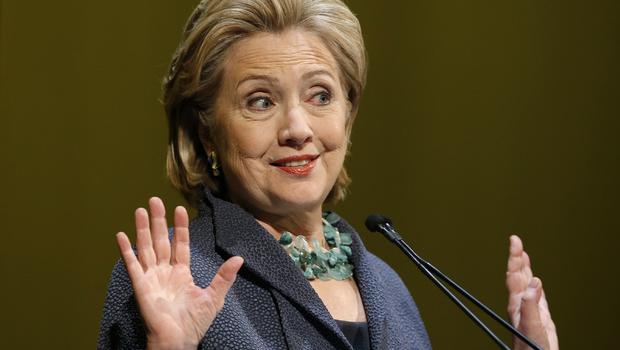 In a presidential election race that has defied all prediction, it’s remarkable how much talk there is of the inevitability of this or that outcome — including this wildly rash assessment from a previously obscure political science professor that Donald Trump can start measuring drapes for the Oval Office.
In a presidential election race that has defied all prediction, it’s remarkable how much talk there is of the inevitability of this or that outcome — including this wildly rash assessment from a previously obscure political science professor that Donald Trump can start measuring drapes for the Oval Office.
On both the left and establishment right, a justifiable panic is setting in that Trump is unstoppable as the Republican nominee, and a less justifiable panic is spreading that he will prove unstoppable in November too. Bernie supporters dismayed to see the race slip away from them point to match-up polls and argue that their guy has a better chance than Hillary Clinton of beating Trump, or anyone else. Across the spectrum, there is exhilaration at the loosening of the usual rules of political conduct but also fear that the system is spiraling out of control.
It seems to me everyone  needs to calm down. And think hard about what will, and will not, determine the outcome of the election.
needs to calm down. And think hard about what will, and will not, determine the outcome of the election.
Here’s what we know:
- The Democrats come into this race with some in-built advantages: the popularity of President Obama, the relative health of the economy (with caveats about who is feeling the benefits), and — most important — the demographics of the swing states where black and Latino voters act as a roadblock to an increasingly white nationalist Republican Party. The GOP has been fretting about this demographic reality for some time.
- That calculus is challenged by the new populism sweeping both parties. Trump appeals to a lot of white working-class Democrats, much as Reagan did. He’s picking up new voters, many of whom like Bernie too — go figure. Hillary is having a surprisingly hard time winning the allegiance of women voters and is flaming out entirely with young voters, at least in the primaries.
- Match-up polls, at this stage, are meaningless. Until we move to the general election phase and we can see how the Trump-Clinton dynamic plays out (assuming that’s what we’ll get), it’s impossible to say how the race will look. The depth of support of both candidates will be tested in new ways, as will their capacity to withstand attacks from the other side. (Note to Bernie supporters: same is true if your guy somehow pulls it off; if Hillary is throwing the kitchen sink at him, the Republicans will burn down the house.)
Here are the questions that will really determine who wins the White House. Again, assuming a Trump-Clinton matchup:
- Can Trump eat far enough into the white working-class Democratic Party base to offset what is likely to be a dismal performance with black and Latino voters?
- Can Clinton win back the women voters who have wavered in the primaries by pointing out a) her feminist credentials and b) Trump’s boorish sexism?
- Can Trump hold on to the new voters who have come out to support him? Will some of them get stymied by the onerous voter registration rules and voter ID laws imposed by Republican state legislatures across the country to shave a point or two off the Democratic vote? A delicious irony were it to be the case.
- Can Clinton convince enough voters who are lukewarm (or worse) about her that they need to turn out and vote for her anyway, if only to stop Trump?
- Will Clinton be able to use Obama’s nominee for the Supreme Court as an extra running mate able to turn out voters in and of himself or herself? Depends on the nominee, but very possibly, I’d say.
- Will the Republican establishment fall in behind Trump, or will they keep their distance and write off the election as lost in advance, as this weekend’s New York Times piece suggests? Remember, it takes more than $1 billion to run for president, and even if we believe Trump’s own assessments of his wealth he won’t be able to pay those bills out of his own pocket. Without party backing, it’s possible money may become an issue.
- Will the media take off the kid-gloves with Trump (who has been a ratings bonanza) and start asking tough questions and/or making a bigger deal of his shortcomings, history, contradictions etc etc? John Oliver has made a start. We know the Clinton campaign will be working overtime to weaken him any way they can, but they can’t do it alone. If the media trains most of its fire on her, it’s going to be a problem.
The signs so far (especially from the party establishments) suggest it is still Clinton’s election to lose. Am I willing to bet on that outcome? Absolutely not. What we need, to get a better perspective on what we are dealing with, is a ground-level analysis of how the factors outlined above are likely to shape the race in each of the dozen or so states where this election will be decided. If there’s one sure bet here, it’s that both parties are busy working on that right now.
Comments